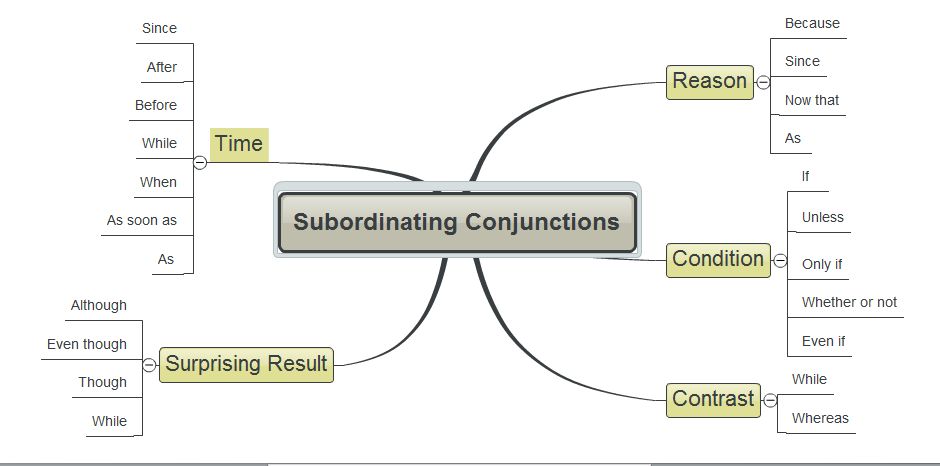How To Use Conjunctions (2)
(https://en.wikipedia.org/wiki/Conjunction_(grammar)#Subordinating_conjunctions)
Now you can tell the difference between ‘Coordinating Conjunctions’ and ‘Subordinating Conjunctions.’ Your next step is ‘practice’ to use them, right? Let’s get started!
[Toki]
Let’s talk about “toki” now. It is almost always translated into “when” in English. There are some grammatical patterns when you use “toki” in Japanese.
I. Noun + no toki (ni) (wa)
Gakusei-no toki-ni furansugo-wo benkyo shimashita. (= When I was a student, I studied French.)
II. I-adjective + toki
Atama-ga itai toki-wa kono kusuri-wo nonde kudasai. (= When you have a headache, please take this medicine.)
III. Na-adjective + toki
Sobo-ga genkina toki yoku hon-wo yonde moraimashita. (= When my grandmother was well, I used to have her read a book to me.)
Those three kinds are quite self-explanatory. Just use the formula, paying attention to the tense!
IV. Verb + toki
According to Japanese Grammar (Keiko Uesawa Chevray and Tomiko Kuwahira, 2011, McGraw-Hill Companies, Inc., p.79), “The event in the subordinate ‘toki’ clause is stated in the past plain form when it takes place before the event in the main clause. On the other hand, the event in the ‘toki’ clause is always stated in the non-past plain form when it takes places after the event of the main clause, regardless of the tense.”
1. Kinoo basu-ni noru toki yoshida-san-ni aimashita. (= Yesterday I met Mr. Yoshida when I rode a bus.)
2. Uchi-ni kaetta toki itsumo Email-wo mimasu. (= I always see my email when I get home.)
3. Nihonjin-wa taberu toki “Itadakimasu”-to iimasu. (= The Japanese say “Itadakimasu” when they start eating.)
4. Resutoran-de shokuji-wo shita toki-wa chippu-wo agemasu. (= We give tips when we eat at a restaurant.)
“A Negative sentence in a ‘toki’ clause is commonly described in the non-past negative plain form whether the statment refers to the non-past event or the past event.”
1. Kane-ga nai toki-wa hon-mo sake-mo kaenakatta. (= When I had no money, I could buy neither a book nor sake.)
2. Shukudai-ga dekinai toki yoku chichi-ga tetsudatte kureta. (= When I couldn’t do my homework, my father often helped me.)
3. Nemurenai toki-wa haabucha-wo nomimasu. (= When I cannot sleep, I drink herb tea.)
Keep practicing with me,
and you will be a master of
“Japanese Conjunctions!”
Special Trial Lesson $19.99 <– Click here!
Deal Extended!
Grab this chance!!





